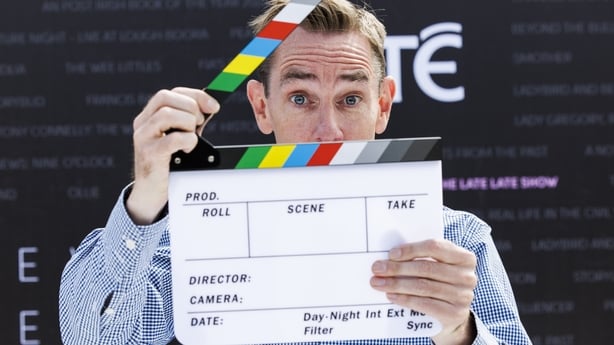Its publication had been highly anticipated for weeks.
The thirst for clarity about the issues concerned, combined with the annual summer drought of news for the media, had amplified calls for the speedy release of the Grant Thornton 2 or GT2 report into goings-on at RTÉ.
But in the end, when it came, the outcome of the probe into the under-declaration by RTÉ of Ryan Tubridy's earnings from 2017 to 2019 was a mixed bag.
It sets out forensically and technically over 79 pages the circumstances surrounding how the public service broadcaster ended up not publicly stating €120,000 in payments it had made to its highest paid presenter over the three years in question.
But only in so far as it can.
Because in a number of respects, Paul Jacobs, the Grant Thornton Partner who wrote the report, was operating with one hand tied behind his back.
First, the terms of reference dictated that he was to only make findings of fact, not of conclusion or blame.
And second, a number of key witnesses who may have been able to shed some light on the matter were unavailable to him – namely former Director General Dee Forbes, who said that she was unable to participate for medical reasons, and Director of Content Jim Jennings.
The result, therefore, is a document which is high on detail, but low on conclusions and also one which reads like it has the handprints of lawyers all over it.

Nonetheless, there are a few key findings which do get to the heart of the matter.
Namely, that Mr Jacobs found that on the balance of probabilities, a plausible explanation for the under-declaration of Mr Tubridy's earnings in the three years in question was RTÉ’s objective to achieve a position where his published earnings for each year were below €500,000.
He also established that neither Ryan Tubridy, nor his agent Noel Kelly, had any involvement in the under-declaration of his earnings – that was the work of RTÉ’s finance department.
And it calls out poor governance, significant deficiencies in internal management controls, failures in the finance function, and a lack of communication from the RTÉ Executive to the RTÉ Board.
All in all, it confirms much of what we already knew from previous statements from the many parties involved, the many hours Oireachtas committee hearings on the matter and interviews given by those at the centre of the debacle.
That’s important though, because throughout the controversy, clarity and certainty has been in short supply.
But what does it all mean for RTÉ?
In the first instance, it underscores the job of work the organisation faces in reforming itself and winning back public and staff trust.
It also is another step along that long road of redemption.
It’s clearly nowhere near the end of the matter, though.
A raft of other reviews which are also underway or about to begin are very likely to expose more of the often shambolic and corner-cutting practices that had characterised the management of parts of the organisation.

Accountancy firm Mazars has already begun its forensic review of RTÉ’s finances.
Two other Government-commissioned independent reviews - one of corporate governance and culture, and the other of contractor fees, HR and other matters - are also due to begin shortly.
As is an independent review of the ill-fated "Toy Show The Musical", which made a €2.2m loss.
A probe of recent voluntary exit schemes is also soon to start.
And in the background, an advisor has been appointed to advise the interim leadership team at the station on corporate governance best practice and reform.
Politicians also clearly have plans to bring RTÉ board members and executives back before Oireachtas committees to ask further awkward questions.
It all means that for RTÉ, there is still a very long way to travel before the fallout from this maelstrom has been properly dealt with.
As for Mr Tubridy, his future technically still remains undecided, although clarity appears to be slowly emerging there too.
He has made no secret of his desire to return to the RTÉ Radio One airwaves again, as soon as possible.
Even in his statement today he refers to his commitment to re-establishing the confidence and trust of colleagues and listeners.
In that regard, the former Late Late Show host will be buoyed by the report’s confirmation that he had no involvement in the under-statement of his earnings and that there was nothing else unexpected in the analysis to cast a shadow over him.
So, it now really boils down to a decision by Director General Kevin Bakhurst.
He has previously publicly stated that he has met Mr Tubridy and had discussions with him, described as good, open and constructive.
But he has also stated that the issues are complex, that the outcome of the GT2 report would be important, as would discussions around the presenter’s offer to pay back €150,000 in payments at the centre of the controversy.
Tonight, though, came the news that negotiations are well advanced on Mr Tubridy’s return to Montrose, although at a salary under €200,000 and on the condition that he returns the €150,000 in payments as promised.
As with all negotiations, the deal is not a deal until the lawyers have had their say and the ink is dry; agreement cannot be assumed.
But one way or the other, an announcement of some sort on the broadcaster’s future is expected within days at this point.
And the likelihood seems to be that Ryan Tubridy will soon be back on air.







